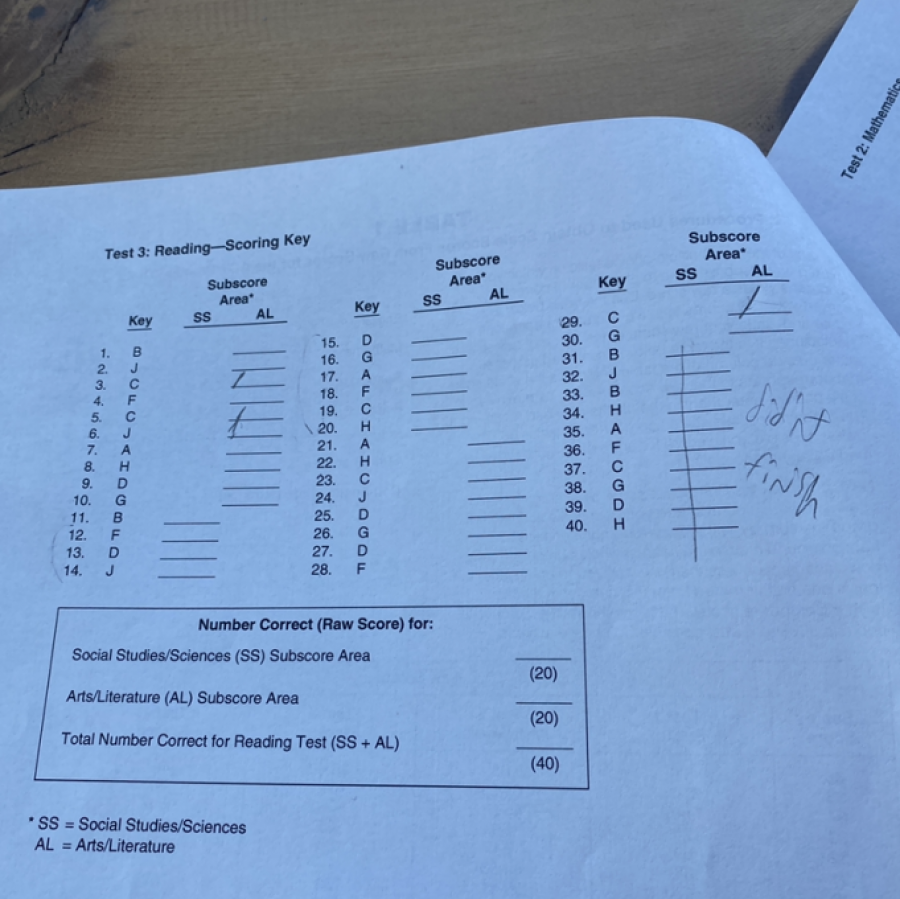College admissions, job applications and internships all depend on a student’s GPA. This causes students to spend more time trying to get good grades, rather than attempting to actually learn the information, which in turn destroys the purpose of a GPA.
Senior Lydia Cox is exhausted from school’s grueling schedule. “I’ve lost so much sleep and free time over a test or an assignment. And nine times out of ten, I don’t even remember the information a week later,” Cox said. “The need to have perfect scores and the limited amount of time doesn’t make it any easier.”
The importance and stress that comes from grades overrides any kind of enjoyment received from learning, and the fear of failure makes the idea of cheating more tempting for many students. Questions in class are usually, “Is this going to be on the test?” or “When is the next assignment due?” If it does not affect their grade, students do not want to learn it because earning points for their GPA is more important.
Grades do not only affect report cards, they also affect how students and peers view themselves. The relationship between a teacher and a student is solely impacted on grades; each letter grade defines a student. Teachers are more prone to trust, listen and focus on the good qualities of an A student rather than a C student.
Senior Natalie Orwitz has discerned this trend. “If I’m ever struggling in a class, I feel ashamed. I feel like I can’t talk to the teacher because they’ll view me a certain way,” Orwitz said. “I wish I wasn’t labeled by a letter grade.”
At home, there is no difference. The pressure for good grades causes parents to also care, increasing the load of stress for students. Every week, teachers get emails from parents who are asking how their kids can raise their grade rather than what their kid is not understanding in class. This proves earning points is prioritized more than actually learning new material in class.
A 2014 survey revealed that 80 percent of kids think their success matters more to their parents than their mental health. Students share similar beliefs about themselves.
Another 2002 psychological study showed over 80 percent of freshmen in college weigh their academic success higher than family support, appearance and other factors. Because of the stress linked with grades, ranking grades as their top priority can be detrimental to kids’ mental health and self-esteem.
The origin of grades come from wanting students to learn, but today’s society has reversed that statement. Grades create an environment limiting expression and individuality. A letter on a report card signifies the mistakes they made in class are permanent, leaving no space for redos or personal development in a particular subject.
School was meant for students to learn and prepare for the world outside of school, but the grading system makes students prioritize getting good grades over learning. They imply failure, limit students on personal development and restrict growth in relationships.
The grading system should create an environment where students enjoy learning rather than a harsh, competitive environment that focuses on earning points.









